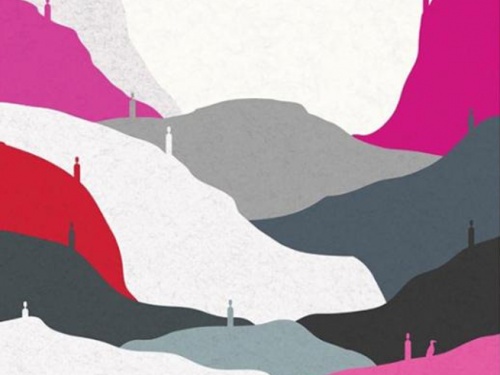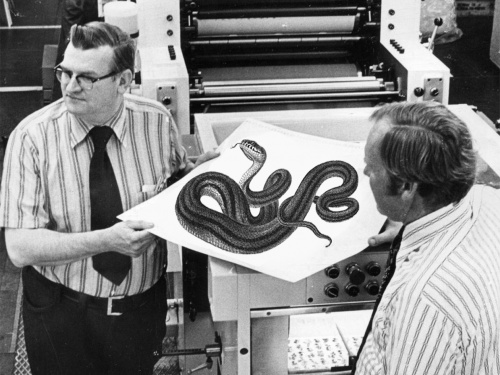Contemporary Interventions: Our MA Programme
The ICA/University of Kent joint MA in the Contemporary is now accepting applications for Autumn 2016 entry. This full-time MA programme provides a deep understanding of the relationship between artistic disciplines and an appreciation of the way in which interdisciplinary thinking makes it possible to grasp and respond to key issues across contemporary culture.
As this year’s students finish their Reading the Contemporary lecture series, jointly taught by lecturers at Kent and ICA curators, and start working on their group project, which will be presented at the ICA in the summer, we asked students from past years what they enjoyed about the MA and what made the experience valuable for them.
Isabella Norton (2013-2014 cohort)
When I took the Reading the Contemporary module in Autumn 2013, the first ICA event our class attended was an off-site exhibition ICA Off-Site: A Journey Through London Subculture: 1980s to Now. The exhibit took place in the Old Selfridge’s Hotel and featured a diverse range of vitrines, recordings, and installations depicting artifacts from various genres of London subculture. The exhibit illustrated 1980s counterculture’s movement from underground to mainstream by showcasing obscure DIY artists next to pieces by famous designers like Vivienne Westwood and Alexander McQueen. In particular, I remember one section on the far side of the exhibition was just footage of McQueen’s iconic 2001 Voss show.
"The themes of salvage, rebellion, and transgression showcased there have continued to inform my own academic work, years after the exhibition closed."
Another student and I stood there silently, watching, as the footage looped over and over. I attended many more provocative exhibitions and seminars during the course of the semester, but my strongest connection remained with that first event. The themes of salvage, rebellion, and transgression showcased there have continued to inform my own academic work, years after the exhibition closed.
Oliver Perrot-Webb (2014-2015 cohort)
Curator Matt Williams introduced us to John Berger's Ways of Seeing, a text/film which became invaluable in my later studies. In fact, the ICA's focus on critiquing Western cultural aesthetics was a major channel that was explored for the remainder of my MA. I found the ICA's in-house research was key to my understanding; being able to use many examples from contemporary art which were relevant to Berger's essay was excellent.
"The MA left me feeling confident about tackling an art world which had previously been alien to me."
This application of key works of art theory to contemporary art practice and wider aesthetic schools made a great many connections for me in relation to a world that I had very little knowledge of previously. This course, alongside other art theory, left me feeling confident about tackling an art world which had previously been alien to me.
Claire Oliver (2015-2016 cohort)
What has struck me are the many ways in which ‘The Contemporary’ can disturb what you think and how you see; its value is priceless. Whatever the chosen form, whether it be art, poetry, prose or film, its significance and relativeness to the way we live now has opened my eyes and challenged my thinking.
"It has given me the desire to dig for more."
In particular, our session on archiving and its role in contemporary curatorial practice (led by ICA Touring Curator Sumitra Upham) interested me - the necessity of unearthing hidden histories, which—despite their radicalness in their time—are often forgotten. The process of researching and discovering moments in the past, which have hidden qualities and an impact on everyday life is insightful; it has given me the desire to dig for more. Archiving is a powerful resource and a necessary one.
The ICA Fox Reading Room is a powerful space and my favourite. Its exhibitions show cultural histories and contexts in a light which, when you’re looking back, casts a different shadow. I now have a new realisation about the use of the archive: its ability to interrupt the present, create new discourse and to unsettle given narratives is brilliant. ■
Jointly taught by academics and practitioners in the School of English, the School of Arts, The School of Music and Fine Art, and Curators at the ICA, the MA in the Contemporary allows students to enrich their academic knowledge and gain unique access to the ICA Programme. Prospective students can now also apply for the MA in the Contemporary with a term in Paris, in the heart of Montparnasse.
This article is posted in: Articles, Blog, Student Forum
Tagged with: MA in the Contemporary, learning, Academic Parnerships, arts education, University of Kent, students, ICA Studentforum, Visual Art, Literature, Paris, MA, Education









